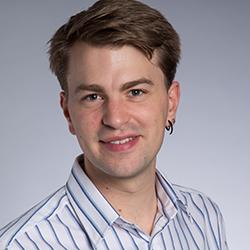We plan to study the effects of diet-induced obesity on fetal development in mice, as their metabolic parameters and fetal development are similar to humans and hypothesize that maternal and paternal obesity have separate and combined effects on placental physiology and fetal growth that relate to changes in parental metabolic health and gamete quality. The proposed work uses a multidisciplinary approach to provide an integrated, mechanistic understanding of the short- and long-term impacts of parental obesity on the course of pregnancy, fetal growth, placental function, parental health and on gamete quality. This study will have special focus on deciphering the role of changes in parental gamete quality and metabolism to separate and combined effects of maternal and paternal obesity on placental physiology and fetal outcome. These observations will lay a foundation for future human-focused studies and changes to policies to improve the health of both women and men and their chances of becoming a parent, with positive benefit for the health of generations to come.
My ultimate goal is to undertake scientific research, that is at the forefront of the placental research and fetal programming field and to establish an independent research lab in Switzerland after gaining sufficient experience as Postdoc. With the help of my Swiss fellowship and as a member of Cambridge Reproduction and the Centre for Trophoblast Research at the Department of Physiology, Development and Neuroscience in Cambridge, I want to foster my ambitions for scientific mobility, acquire further expertise in cutting-edge techniques and will expand my international scientific network and standing in the field


